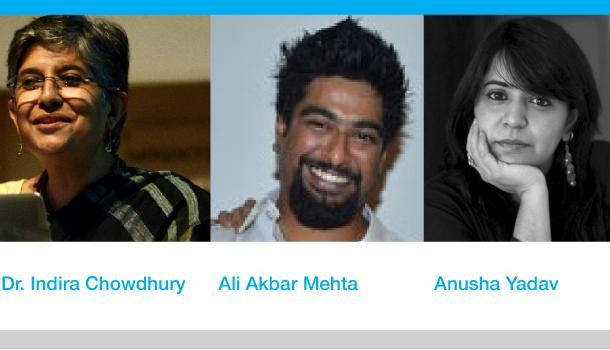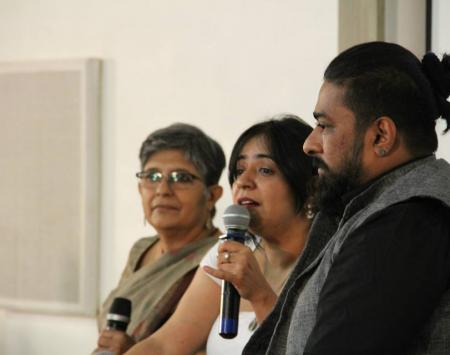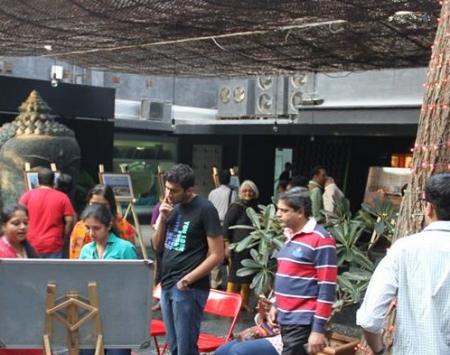In this special Friday Funda, Anusha Yadav, founder of the Indian Memory Project (the world’s first online visual and personal narratives based collective history archive) and Dr. Indira Chowdhury, the President of International Oral History Association (IOHA) and Oral History Association of India (OHAI),took us on a nostalgic tour of the maximum city that so many of us call home. This event was in collaboration with HistoryWorks by Godrej Archives and the Oral History Association of India (OHAI). In addition to this artist Ali Akbar Mehta displayed an exhibit titled Site: Stage: Structure, an archival project based within and around the geographical locations of Mazagaon and Wadibunder.
About the speakers
Anusha Yadav, founder of the Indian Memory Project, is a photographer and communication designer. She is an INK fellow, a 2013 L’Oreal Paris Femina Women Achiever, the recipient of the ‘Honorary’ award - Prix Ars Electronica Austria 2013, and of the award Innovator of the Year 2014 - India Today Women’s summit. Her works have been featured in India, UK, USA, Austria, China, Germany, Pakistan, France, Singapore and South Africa.
Dr. Indira Chowdhury heads the Centre for Public History at the Srishti School of Art, Design and Technology, Bangalore. Her book The Frail Hero and Virile History, was awarded the Tagore Prize in 2001. Indira is the founder one of the earliest archival consultancy services in India - the Archival Resources for Contemporary History (ARCH) and has also set up the archives of several organisations like the Tata Institute of Fundamental Research and Economics and Political Weekly (EPW).
Ali Akbar Mehta collaborates with robotic engineers, computer programmers, musicians, writers, theater and film makers and aims to find processes that would leave deep impacts on contemporary culture, technology and knowledge. He has showcased his drawings, paintings and digital works in exhibitions at galleries like Tao Art Gallery, Galerie Mirchandani-Steinruecke in Mumbai and Art Heritage in New Delhi.




